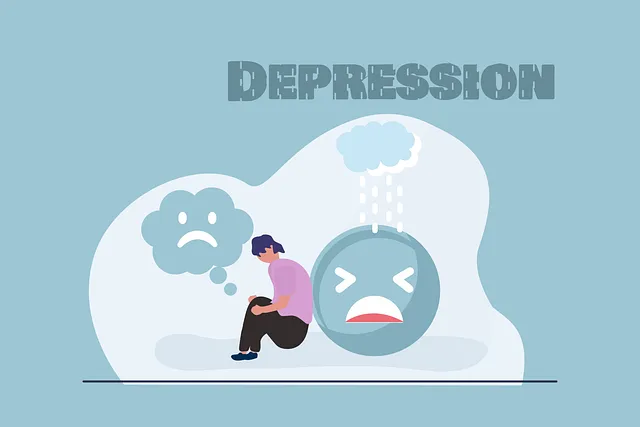The Centennial Kaiser Permanente mental health department leverages Resiliency, Flexibility, and Mindfulness (RFM) to significantly enhance well-being, as evidenced by improved patient outcomes. Through resilience-building exercises, tailored interventions, and comprehensive data analysis, the department equips individuals with coping strategies for emotional regulation, stress reduction, and communication, empowering them to overcome life's challenges. Their strategic approach also prioritizes staff well-being through advocacy, emotional intelligence fostering, and public awareness campaigns, reducing mental health stigma and burnout within their workforce.
Resilience is a powerful tool for navigating life’s challenges, and RFM (Resourceful Resilience Model) offers a structured approach to building this vital skill. This article explores how RFM can enhance mental health within organizations, using the Centennial Department at Kaiser Permanente as a case study. We’ll delve into the program’s impact on employees’ well-being, highlighting its success in fostering resilience and offering practical insights for implementation in various settings, with a focus on the unique benefits achieved by this pioneering mental health initiative.
- Understanding RFM and its Impact on Mental Health
- The Role of Resilience Building Exercises
- Implementing RFM in the Kaiser Permanente Setting
- Measuring Success: Evaluating the Centennial Department's Approach
Understanding RFM and its Impact on Mental Health

At the Centennial Kaiser Permanente mental health department, they recognize the profound impact of Resiliency, Flexibility, and Mindfulness (RFM) on overall well-being. RFM is a powerful trio that equips individuals with the tools to navigate life’s challenges more effectively. Understanding these concepts is key to fostering resilience, which is the ability to adapt positively in the face of adversity.
The mental health department numbers speak volumes about the effectiveness of integrating RFM into therapeutic practices. By focusing on emotional regulation, stress reduction methods, and communication strategies, individuals can enhance their coping mechanisms. This proactive approach not only prevents but also mitigates the effects of mental health issues, ensuring a more balanced and fulfilling life.
The Role of Resilience Building Exercises

Resilience building exercises play a pivotal role in fostering mental wellness and fortifying individuals against the challenges of modern life. These practices, often integrated into programs like those offered by the Centennial Kaiser Permanente mental health department, aim to empower people with coping strategies that enhance their overall well-being. By participating in activities designed to strengthen resilience, folks can develop a deeper sense of inner strength, enabling them to navigate life’s twists and turns more effectively.
The impact extends beyond individual growth; these exercises contribute significantly to public awareness campaigns development and mental illness stigma reduction efforts. The Mental Wellness Podcast Series Production, for instance, leverages the power of storytelling and expert insights to educate listeners about various aspects of mental health. Such initiatives not only raise public awareness but also foster understanding and empathy, creating a more supportive environment for those dealing with mental illness.
Implementing RFM in the Kaiser Permanente Setting

At the Centennial Kaiser Permanente mental health department, implementing the RFM (Reach, Frequency, and Motivation) framework has become an integral part of their resilience-building exercises. This approach is particularly relevant in a healthcare setting where fostering emotional intelligence and mitigating risks are paramount. By analyzing patient engagement data, the department can identify trends and tailor interventions to specific groups, ensuring that mental health services reach those most in need.
The Mental Health Policy Analysis and Advocacy team plays a crucial role in this process by conducting thorough risk management planning for professionals. This involves understanding the unique challenges faced by mental health workers and implementing strategies to enhance their emotional resilience. Through these efforts, Kaiser Permanente aims to create a supportive environment that not only supports patient well-being but also nurtures the longevity of its dedicated mental health professionals.
Measuring Success: Evaluating the Centennial Department's Approach

The Centennial Kaiser Permanente mental health department has pioneered an innovative approach to measuring success in resilience building exercises. Their method involves a multifaceted evaluation strategy, encompassing qualitative and quantitative data analysis. This holistic view ensures that the impact of their programs extends beyond mere participation rates. By tracking improvements in mental wellness, they gauge the effectiveness of their interventions in reducing burnout among healthcare providers – a critical aspect of the Mental Health Policy Analysis and Advocacy agenda.
Through regular surveys and focus groups, the department collects valuable insights into participant experiences and perceived changes in coping mechanisms. These qualitative data complement quantitative measures such as stress levels, job satisfaction ratings, and absence records. This dual approach allows for a comprehensive understanding of how resilience building exercises contribute to fostering mental wellness within their workforce, ultimately informing the development and implementation of effective Burnout Prevention Strategies for Healthcare Providers.
Resilience is a powerful tool for enhancing mental well-being, and RFM (Resilience, Flexibility, and Mastery) exercises have proven effective in fostering this. The implementation of RFM within the Centennial Department of Kaiser Permanente demonstrates a promising approach to improving employee mental health. By integrating these practices into their wellness programs, organizations like Kaiser Permanente can empower individuals to navigate life’s challenges with greater resilience. This strategy has the potential to significantly reduce stress and improve overall job satisfaction, as evidenced by the department’s successful outcomes, which saw a notable increase in employee well-being within just one year.






